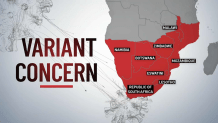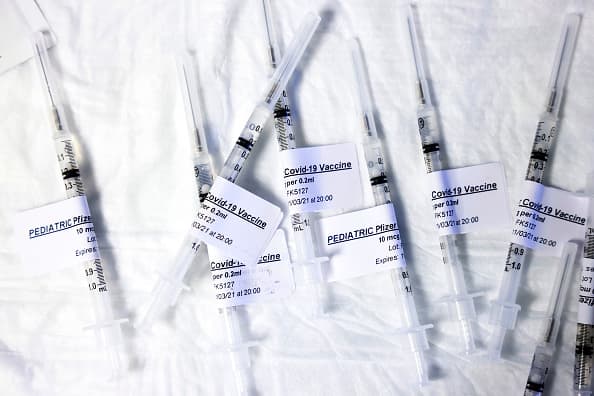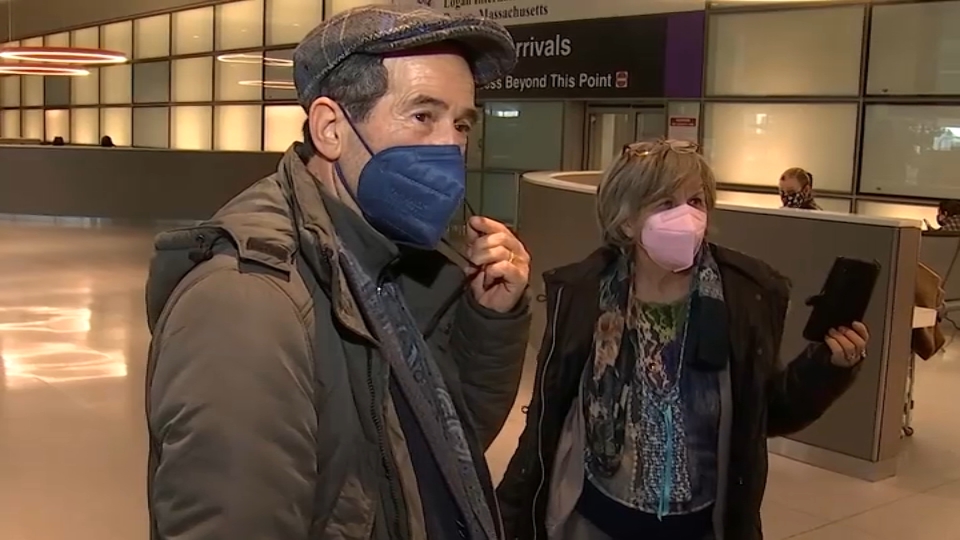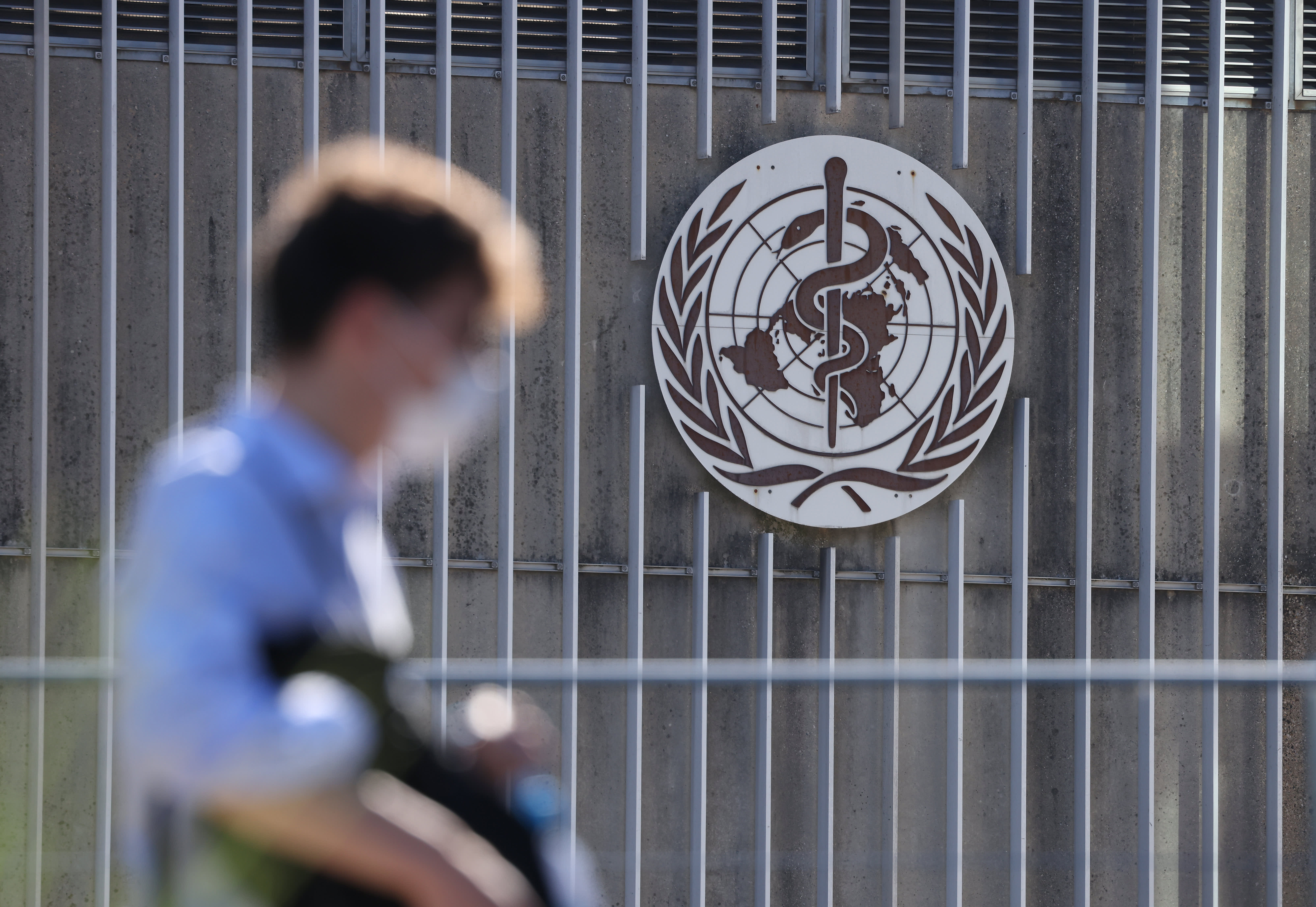The world is on high alert as new cases of the potentially more contagious omicron variant of the coronavirus continue to get reported in Britain and across the globe.
Amid fears that the recently identified new variant has the potential to be more resistant to the protection offered by vaccines, there are growing concerns that the pandemic and associated restrictions will persist for far longer than hoped.
Here's what we know so far:
What is omicron? The new variant, explained
An advisory panel of the World Health Organization on Friday classified a worrying new COVID-19 variant first detected in South Africa as a highly transmissible virus of concern, naming it “omicron” under its Greek letter system.
The U.N. health agency also said early evidence on the variant, until now known by the technical term B.1.1.529, has shown an increased risk of reinfection compared to other highly transmissible variants, indicating that people who contracted COVID-19 and recovered could be more subject to catching it again with Omicron. The WHO suggested that the variant could pose greater risks than the delta variant, which was first detected in India and has been causing ravages worldwide.
The WHO announcement marks the first time in months that it has classified a COVID-19 variant as the highly-transmissible “variant of concern.” The classification also applies to delta, which has become the world’s most prevalent variant.
Many countries have slapped restrictions on various southern African countries over the past couple of days including Australia, Brazil, Canada, the European Union, Iran, Japan, Thailand and the United States, in response to warnings over the transmissability of the new variant — against the advice of the World Health Organization. Pharmaceutical companies expressed optimism that they could finesse their vaccines to deal with the new variant though that would clearly take some time.

Despite the banning of flights, there are mounting concerns that the variant has already been widely seeded around the world. In addition to the U.K, cases have been reported in travelers in Belgium, Israel and Hong Kong. Germany also said it suspected a positive case and Dutch authorities were testing whether 61 people who arrived on two flights from South Africa with COVID-19 have the omicron variant.
With so much uncertainty about the omicron variant and scientists unlikely to flesh out their findings for a few weeks, countries around the world have been taking a safety-first approach, in the knowledge that previous outbreaks of the pandemic have been partly fueled by lax border policies.
The variant’s swift spread among young people in South Africa has alarmed health professionals even though there was no immediate indication whether the variant causes more severe disease.
A number of pharmaceutical firms, including AstraZeneca, Moderna, Novavax and Pfizer, said they have plans in place to adapt their vaccines in light of the emergence of omicron. Pfizer and its partner BioNTech said they expect to be able to tweak their vaccine in around 100 days.
Gov. Baker voices his support for U.S. travel ban
Massachusetts Gov. Charlie Baker weighed in on Twitter on Friday, agreeing with President Joe Biden's decision to order air travel restrictions from South Africa and seven other countries, effective Monday.
"This is the right move until the medical community can learn more about this new variant," he said. "Getting a vaccine and a booster remains the best way to keep you and your family safe."
Earlier this week, the Baker administration announced that any hospital or hospital system facing limited capacity to care for patients will be required to reduce non-essential, non-urgent scheduled procedures beginning Monday. The guidance comes as coronavirus cases in the state continue to increase steadily.
On Friday, state health officials reported 5,058 new COVID-19 cases and 24 new deaths, encompassing data from the past two days as the Department of Public Health's interactive coronavirus dashboard was not updated on Thanksgiving Day.
The number of patients in Massachusetts hospitals with confirmed COVID-19 cases also increased to 771, the most since March 1, according to state data.
Is the omicron variant already here in Massachusetts?
"There's a lot of unknowns with the omicron variant that was announced, but I think like all the other variants, we want to be cautious moving forward and so I do support what the Biden administration has done with regards to restricting travel until we have more data," said Dr. Simone Wildes of South Shore Hospital.
She added that it's possible the omicron variant is already here in Massachusetts.
"I think it's important that we take certain precautions. Get your vaccines if you haven't yet. And if you have been vaccinated, please get your booster," Wildes said. "You know, it's really very important that we start doing these things to make sure if it does come here we are already prepared."
Dr. Ashish Jha, dean of Brown University’s School of Public Health, said it's "entirely possible" that the omicron variant is already here in the U.S. But he said while a travel ban could help slow the spread by a week or two, it doesn't outweigh the cost.
"South Africa has done an extraordinary job identifying, sequencing and transparently sharing data on the variant," he said Friday on Twitter. "If we impose a travel ban... the signal to the next country is if you identify a variant and share it with the global community you will be punished with a travel ban."
He called the travel ban "a weak tool" for fighting a global pandemic.
"We've seen variants come and go and every month or two we hear about one. This one is concerning, this one is different," he added during an appearance Friday on PBS News Hour. "There's a lot of features here that have me and many of us concerned about this and we really need more information, but we've really got to pay attention to this variant."
"So first and foremost, we've seen a huge uptick of this variant in South Africa that it has really taken off very, very quickly -- much faster than we saw the delta variant or the alpha variant -- suggesting, not proving, that it could be a lot more contagious. And then there are mutations on this virus that really make many of us concerned that our vaccine effectiveness may take a hit as well."
Dr. Jeremy Faust, an emergency physician at Brigham and Women's Hospital, said Friday on Twitter that a partial travel ban makes no sense. "Given what we know, it's all or none..." he said.
In a blog post Friday, Faust said he has seen no public data yet that proves omicron is more contagious than prior variants.
"The WHO has either gotten ahead of this (some would say 'jumped the gun'), in which case we may soon be able to de-escalate if our worst fears do not play out, or they are withholding data that we desperately need to see," he said. "It’s unlikely that the WHO is withholding data. So we should watch things unfold with open minds. This could go in any direction."
Faust said there are two important and realistic possibilities to support omicrons' dominance in some parts of southern Africa The first is that it is more contagious. But the second is that we are seeing an example of the "founder effect," where there is no disease in a certain area and a new outbreak occurs.
"So far, we do not know which of these possibilities is true, though again it makes sense to assume that Omicron is more contagious until we know more," he said. "But if what we are seeing is all 'founder effect' and Omicron us truly not more contagious than Delta, the worries... may be unfounded."
Will omicron cause another lockdown?
Travelers at Boston Logan International Airport on Saturday said they are paying close attention to news about the omicron variant.
"It obviously scares me," said Brian Hussey of Taunton. "It's safe to assume this variant has already gotten to the United States. I mean, usually when it gets to that point, it's almost a certainty."
Elizabeth Ryan, who was on her way back to college in Florida, heard about the variant on TikTok.
"A nurse says that it could get worse in January and February," she said. "Like, we should start preparing for it. Again."
Others said they are trying to stay positive.
"Everything is getting better at this point," said Jason Yung of Boston. "I just hope so. Yes, be positive."
The Associated Press contributed to this report.




